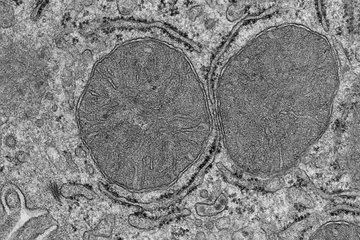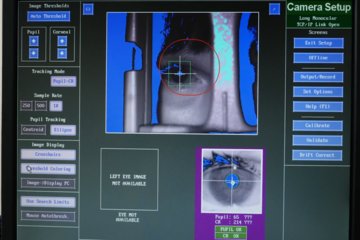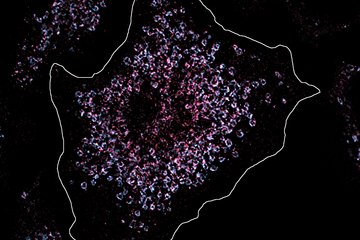Max Planck Society publishes statement on genome editing
Scientists reject altering human germline at the present time
The rapid development of CRISPR/Cas technology and other genome-editing techniques raises a variety of scientific, legal and ethical questions. The Max Planck Society has decided to contribute the expertise of its scientists to foster scientific and societal debate on the subject. It has therefore formulated its position on genome editing in a position paper. The paper considers the current state of our knowledge insufficient to justify, among other things, modifying the human germline. It also calls for European legislation to be adapted to the current state of research and for plants with edited genetic material to be no longer be classified as genetically modified if they imitate the natural process of mutagenesis. "The position paper reflects the great potential of genome editing and the ethical and legal challenges it poses. The Max Planck Society wants to show how science can use this potential responsibly in order to gain important insights for the benefit of society, especially with regard to new applications in the fields of medicine and nutrition," says Martin Stratmann, President of the Max Planck Society.
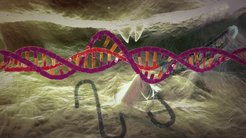
Genome editing now allows us to modify the genome of organisms precisely and efficiently. In recent years, scientists of the Max Planck Society have developed and applied new editing techniques that have led to important advances in the life sciences and medicine.
Commissioned by Max Planck President Martin Stratmann, the Ethics Council of the Max Planck Society has reviewed the state of knowledge of genome editing over a period of two years and prepared a discussion paper. The statement summarizes the key points and highlights topics relevant to science and politics. It covers a wide range of views on the impact of genome editing on basic research and also considers the positions of other organizations. "The statement is intended to stimulate discussion on a number of research-related issues. The Max Planck Society would like to contribute its expertise to the public discourse so that politics can make informed decisions in a socially important but also very complex area," says Martin Stratmann.
Genome editing of somatic cells – all cells of the body other than germ cells – could be used to treat many diseases in the future. These include inherited genetic defects, some forms of cancer and infectious diseases such as HIV. Clinical trials are currently in progress. Researchers at the Max Planck Society are in no doubt that genome editing has huge potential for developing new therapies. The statement concludes that it is somatic line genome editing that will initially yield the greatest progress, due, in part, to the fact that it raises no new ethical or legal concerns.

Open questions on hereditary genome editing
Germany and 13 other European countries prohibit germline editing and the use of human embryos for scientific research. In contrast to somatic cell genome editing, embryonic or germ-cell editing will not only have an impact on a single human individual but on future generations. Editing of germline genes in humans, it is thought, would, among other things, impinge on the right of self-determination of future generations.
In its position paper, the Max Planck Society considers the current state of the technology precludes any intervention in the human germline. Critical security concerns and ethical issues remain unsolved. In addition, significantly safer alternatives already exist, such as pre-implantation diagnostics. Before germline editing can be employed, ethical conflicts must first be resolved, and the potential benefits and risks of the adverse effects on future generations need to be evaluated. Another complicating factor is how to draw a line between curing a disease and enhancing traits, such as mental ability. In the absence of a clear means of resolving such ethical issues, the Max Planck Society rejects genome editing of the human germline.
Adaptation of the European Genetic Engineering Laws
The paper raises another important issue: the legal status of genome-edited plants and animals cultivated or bred outdoors by scientists. In 2018, the European Court of Justice ruled based on the EU Directive on genetic engineering of 2001 that organisms that have been genetically edited must be subjected to the same approval procedures as genetically-modified organisms.
Many Max Planck Society scientists are concerned about this decision, as it will severely complicate field studies and the breeding of genome-edited crops in Germany. They are, therefore, calling for the European Directive on genetic engineering to be updated. According to the position paper, a new Directive should reflect the scientific advances of recent years and distinguish between genome editing technologies that mimic natural mutations and those that involve a higher degree of control.
Gene drive: benefits and risks
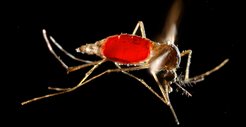
Genome editing can also be used to genetically modify wild animal species such as insects. The technology known as a "gene drive", based on genomic editing, needs, in particular, to be addressed, as it can be used to modify or destroy entire populations. This is possible as a drive has the potential to introduce a modified gene into every individual of a population within a few generations. The gene might, for example, prevent a mosquito species from transmitting diseases such as malaria by making them resistant to the malarial pathogen or might render them infertile and, thereby, entirely eradicate the species.
The Max Planck Society recommends that this field of research continue to be monitored, as, although it has great potential for combating diseases, the associated risks are still unclear. In most cases, for example, the current state of research cannot tell us how an ecosystem would be affected by the loss of specific species. In addition, the technology poses ethical and legal dilemmas. For example, before genetically modified insects are released, possible transboundary effects need to be considered. People affected by the release also need to be given sufficient information about the purpose and possible consequences of the release.
The position of the Max Planck Society is that internationally valid ethical and legal standards need to be developed on the use of gene drives. It is committed to supporting this process and will make its scientific expertise on the opportunities and risks of this technology available to decision-makers at home and abroad.







